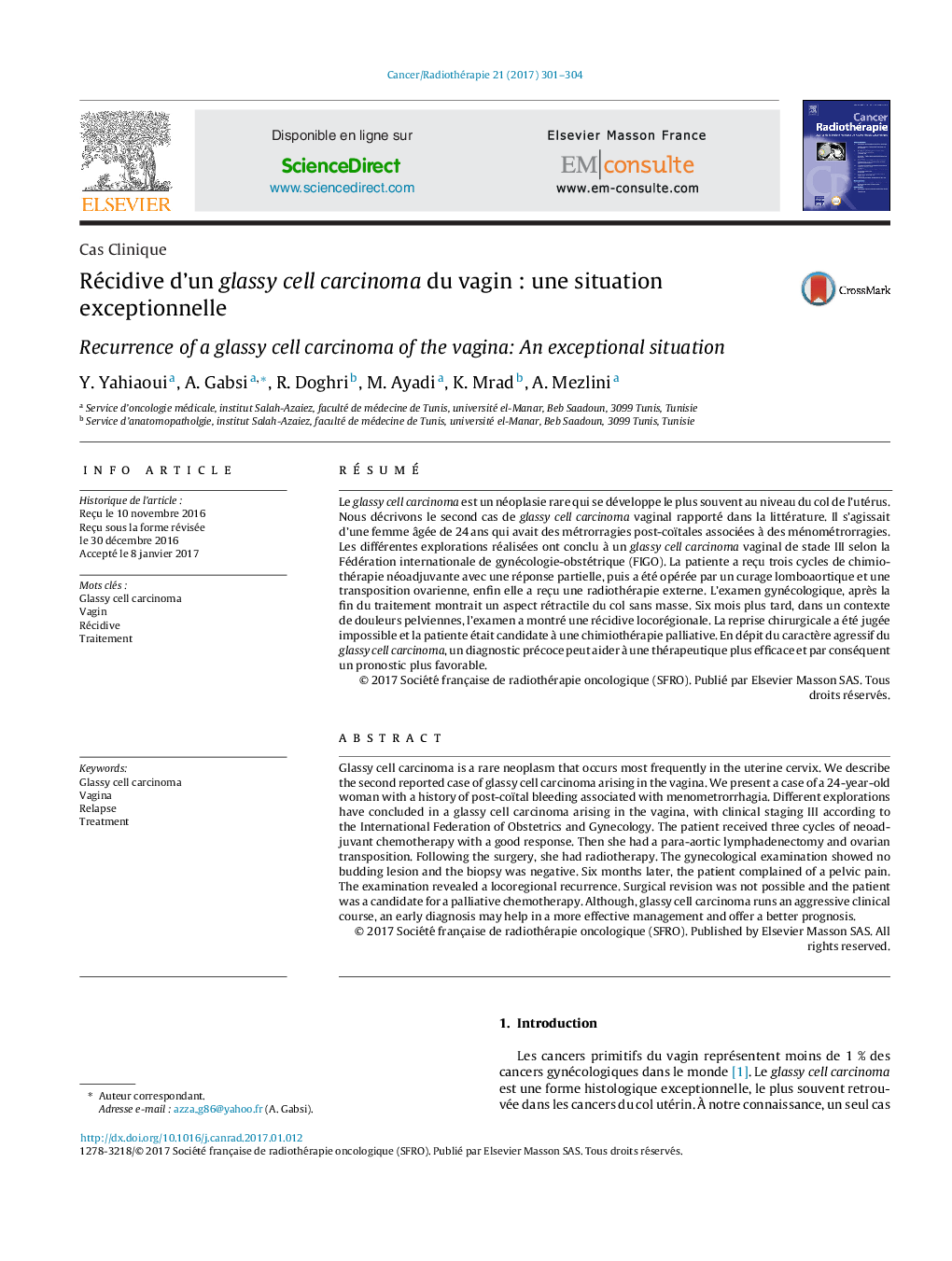| Article ID | Journal | Published Year | Pages | File Type |
|---|---|---|---|---|
| 5525900 | Cancer/Radiothérapie | 2017 | 4 Pages |
RésuméLe glassy cell carcinoma est un néoplasie rare qui se développe le plus souvent au niveau du col de l'utérus. Nous décrivons le second cas de glassy cell carcinoma vaginal rapporté dans la littérature. Il s'agissait d'une femme âgée de 24 ans qui avait des métrorragies post-coïtales associées à des ménométrorragies. Les différentes explorations réalisées ont conclu à un glassy cell carcinoma vaginal de stade III selon la Fédération internationale de gynécologie-obstétrique (FIGO). La patiente a reçu trois cycles de chimiothérapie néoadjuvante avec une réponse partielle, puis a été opérée par un curage lomboaortique et une transposition ovarienne, enfin elle a reçu une radiothérapie externe. L'examen gynécologique, après la fin du traitement montrait un aspect rétractile du col sans masse. Six mois plus tard, dans un contexte de douleurs pelviennes, l'examen a montré une récidive locorégionale. La reprise chirurgicale a été jugée impossible et la patiente était candidate à une chimiothérapie palliative. En dépit du caractère agressif du glassy cell carcinoma, un diagnostic précoce peut aider à une thérapeutique plus efficace et par conséquent un pronostic plus favorable.
Glassy cell carcinoma is a rare neoplasm that occurs most frequently in the uterine cervix. We describe the second reported case of glassy cell carcinoma arising in the vagina. We present a case of a 24-year-old woman with a history of post-coïtal bleeding associated with menometrorrhagia. Different explorations have concluded in a glassy cell carcinoma arising in the vagina, with clinical staging III according to the International Federation of Obstetrics and Gynecology. The patient received three cycles of neoadjuvant chemotherapy with a good response. Then she had a para-aortic lymphadenectomy and ovarian transposition. Following the surgery, she had radiotherapy. The gynecological examination showed no budding lesion and the biopsy was negative. Six months later, the patient complained of a pelvic pain. The examination revealed a locoregional recurrence. Surgical revision was not possible and the patient was a candidate for a palliative chemotherapy. Although, glassy cell carcinoma runs an aggressive clinical course, an early diagnosis may help in a more effective management and offer a better prognosis.
